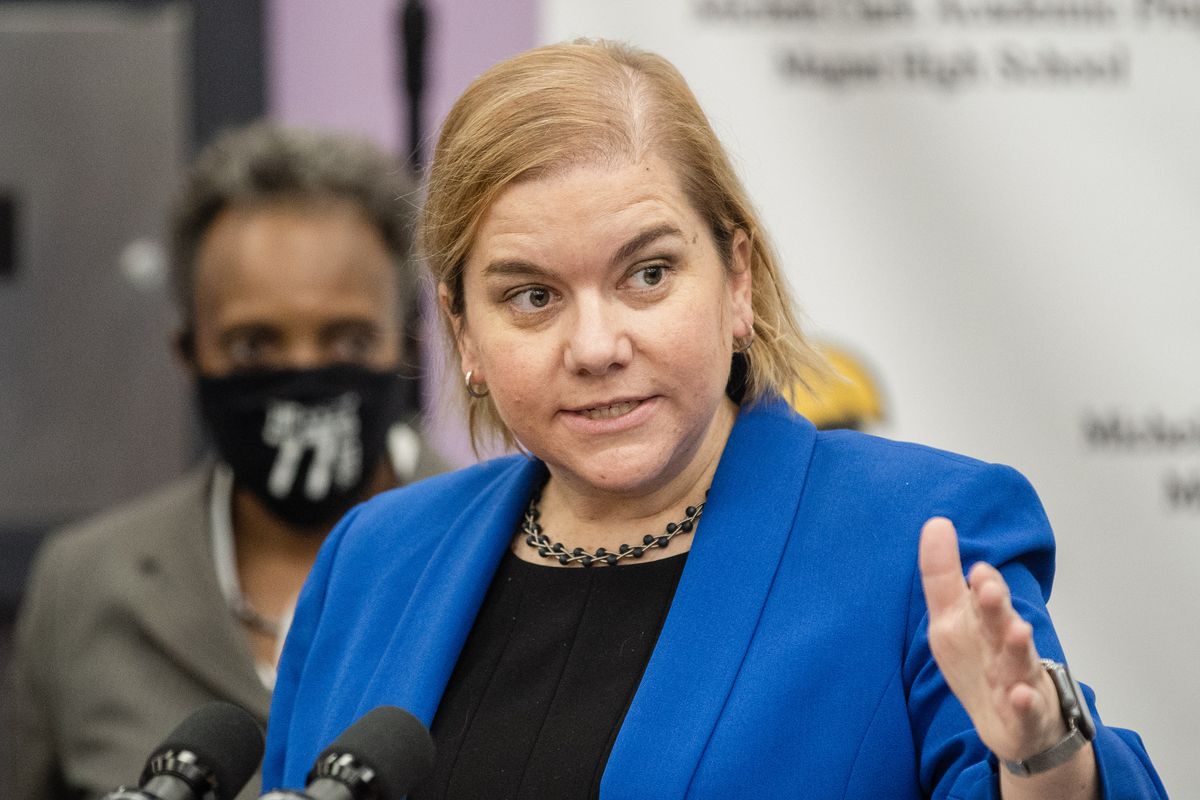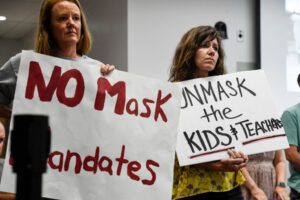Public health officials on Tuesday announced 78 more COVID-19 deaths across Illinois, the state’s highest one-day toll in 10 months.
That’s almost four times as high as Illinois’ daily coronavirus death rate over the past month, and it’s the most fatalities reported in a day since 102 lives were lost statewide Feb. 11, at the tail end of the state’s worst surge of the pandemic.
The state is now averaging 41 deaths per day over the past week, up from about 23 per day during the first week of November, according to figures from the Illinois Department of Public Health.
The rise in deaths predictably follows a month-long case surge that has shown no sign of slowing down. It’s a pattern that has played out like clockwork during each of Illinois’ four major previous surges in the pandemic: rising case counts lead to more serious infections requiring hospitalization, which are more likely to end in tragedy within a few weeks. The latest spike appears to be no exception.
“Things are not looking that great from a COVID perspective,” Chicago Public Health Commissioner Dr. Allison Arwady said during an online Q&A, noting that the Midwest is at the center of a nationwide uptick.
New COVID-19 deaths by day
Graphic by Jesse Howe and Caroline Hurley | Sun-Times
Source: Illinois Department of Public Health
Graph not displaying properly? Click here.
After a brief respite from summer’s initial Delta variant surge, Illinois cases started rising again in late October. The state closed out that month averaging 2,226 new cases per day. That average daily rate has more than tripled, up to 7,340.
Hospitalizations started rising Nov. 1 and are now at the highest point seen since late January, with 3,029 beds occupied as of Monday night. That’s more than double the nightly number seen in late October, but for now it’s only about half as bad as things got during last fall’s surge, which peaked about a month before vaccines were launched.
About three-quarters of Illinois residents 5 or older have gotten at least one shot, and about two-thirds are considered fully vaccinated. Roughly a third of eligible adults have received a booster dose.
Officials are urging the vaccinated to get boosted and the unvaccinated to finally roll up a sleeve as COVID-19’s Omicron variant looms. Arwady said she expects the more transmissible variant to be detected in Illinois “in the next day or two.”
“Might we begin requiring proof of vaccination for more activities and public spaces? Yes, I think we might. I certainly am more interested in that than I am in needing to do some of the major shutdowns [like last year],” Arwady said. “Theaters and many other spaces have already been doing this [requiring proof of vaccination], but it is certainly something that … as this increase is continuing, perhaps with a new variant, we may do more of.”
Gov. J.B. Pritzker said he’s “hopeful that what is now a surge of Delta variant that is filling our hospitals will abate over time and that we’ll be able to manage through Omicron, which so far appears to be a little less virulent.”
“I want to encourage everybody: please get vaccinated,” Pritzker said at an unrelated Maywood news conference. “That is what will ultimately keep you from going into the hospital and keep you healthy.”
The virus has claimed 26,698 Illinois lives over the past 21 months.
Vaccines are free at pharmacies nationwide. The city also offers free in-home vaccination appointments. For more information, visit chicago.gov/covidvax or call (312) 746-4835.



















